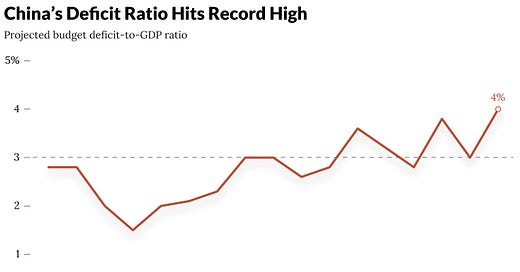China surprised few by announcing a GDP growth target of “around 5%” for 2025, the same as last year, but it also revealed a record-high budget deficit projection, indicating fresh fiscal stimulus in the pipeline.
The spotlight is now on the greater fiscal spending, which Beijing has tabled as one of the primary tools to help navigate economic headwinds, including an unstable real estate market, as well as weak consumer confidence and domestic demand. These tools are crucial for China to achieve its growth goal amid mounting external uncertainties.
The consensus among many analysts is that a more complex global trade environment, characterized by additional U.S. tariffs on Chinese imports, presents a notable challenge for China this year by dragging on exports, a key growth driver.
A cumulative 20% extra tariff has been imposed on China since President Donald Trump took office in the White House in January. While future tariff hikes are yet uncertain, the president threatened up to 60% on Chinese goods during his election campaign. Some analysts anticipate the ripples of additional duties will take a toll on China’s exports as soon as the second quarter of this year.
Keep reading with a 7-day free trial
Subscribe to Caixin Global China Watch to keep reading this post and get 7 days of free access to the full post archives.




